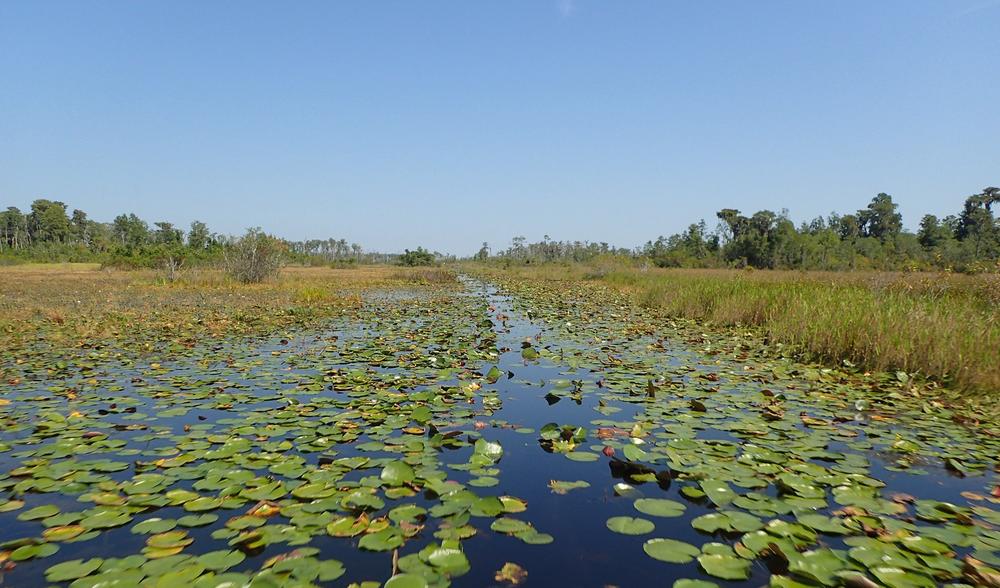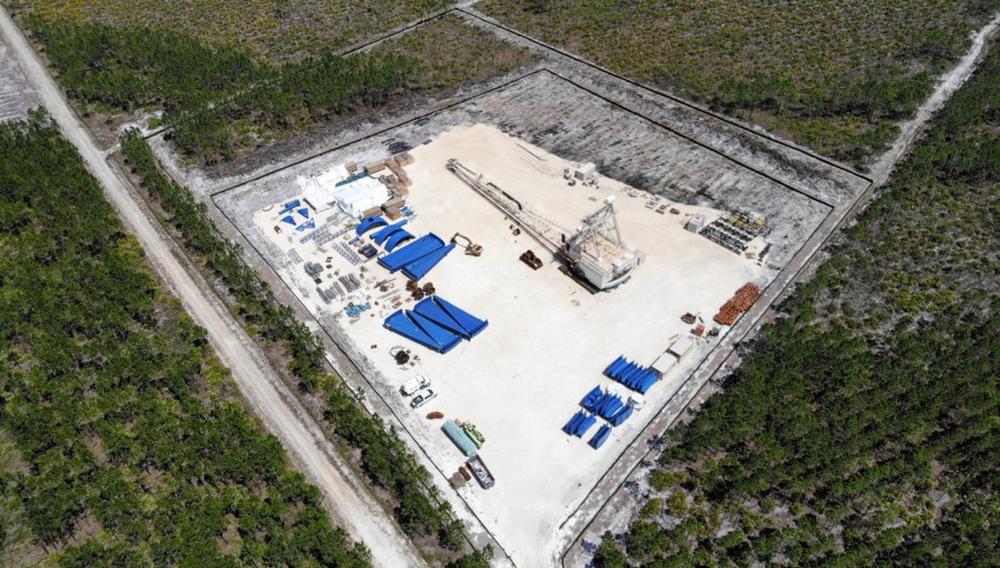
Caption
The Okefenokee Swamp is one of the world’s largest intact freshwater wetlands.
Credit: Okefenokee National Wildlife Refuge

The Okefenokee Swamp is one of the world’s largest intact freshwater wetlands.
Mary Landers, The Current
A large U.S. mining corporation pledged on Thursday it won’t be doing business — at least for the next five years — with Twin Pines Minerals, the company poised to mine just a few miles from the Okefenokee Swamp.
“With respect to mining activities of others, particularly Twin Pines, Chemours has no role in the proposed Twin Pines project in Charlton County, Georgia,” Chemours spokeswoman Lisa Randall wrote in an email. “We have no previous, existing, or future interest in acquiring, and no plans or intent to acquire, the project or the company. We have no intention or plans, now and for the foreseeable future (the next five to ten years), of doing business with Twin Pines, including buying from the project or any titanium the project produces.”
The announcement came in response to a shareholder proposal filed in November on behalf of the Felician Sisters of North America, an order of Catholic nuns. Sister Mary Jean Sliwinski, provincial sustainability coordinator, called the pledge “a good start.”
“There’s a long way to go to protect the swamp; there’s still a lot of work that needs to be done,” Sliwinski said in a Zoom interview from her office in Buffalo. “They’re working on some legislation. So hopefully, that will help. But it’s the beginning of a process.”

Sr. Mary Jean Sliwinski
State legislators are drafting a bill to protect the swamp from nearby mining. The Okefenokee Swamp is one of the world’s largest intact freshwater wetlands. More than 402,000 acres are protected in the Okefenokee National Wildlife Refuge, the largest refuge in the eastern United States and home to hundreds of plant and animal species.
Chemours also announced a further commitment to “ensure the value of the Okefenokee is maintained” and made it clear that it has no plans to mine next to the refuge, according to Green Century Management, the investment advisor that filed on behalf of the Felician Sisters.
“We applaud Chemours’ commitment to protect the Okefenokee,” said Thomas Peterson, shareholder advocate with Green Century. “Chemours’ decision to disavow any interest in the Twin Pines project sends an important signal: The leading company in the industry is stating that titanium mining next to the refuge is a non-starter.”
Peterson said shareholders were also reassured by a Chemours’ statement that its existing mining locations can supply the company’s titanium dioxide needs well into the 2030s.
Two decades ago, a similar shareholder proposal helped convince DuPont, Chemours’ corporate predecessor, to abandon mining plans in the same area.
Twin Pines Minerals LLC, a privately held company, is seeking state environmental permits to mine a 740-acre area that comes within three miles of the Okefenokeee National Wildlife Refuge. Forty conservation organizations have banded together to form the Okefenokee Protection Alliance, which is urging the Georgia Environmental Protection Division to deny Twin Pines the five permits needed to proceed. Their main concern is that mining so close to the edge of the swamp, especially on an area of ancient sand dunes called Trail Ridge, risks disrupting the flow of water in and out of the swamp. As Green Century’s proposal lays out, disrupting the swamp’s hydrology risks reducing its biodiversity. It could also increase the risk of wildfire, and the release of the 95 million metric tons of carbon dioxide stored within its peat.
More than 100,000 public comments have been filed with the state and federal governments opposing the Twin Pines project, and over 100 religious leaders from around Georgia have declared their opposition, as have a bipartisan group of state and federal officials, including Bruce Babbitt, Interior Secretary under President Bill Clinton, and Hank Paulson, Treasury Secretary under President George W. Bush.
State Rep. Ron Stephens, a Republican from Savannah, indicated he is cosponsoring a bill that he expects will be filed filed next week to prohibit mining on Trail Ridge.
The bill would “prohibit the director of the Environmental Protection Division of the Department of Natural Resources from issuing, modifying, or renewing any permit or accepting any bond to conduct surface mining operations on the geological feature known as Trail Ridge between the St. Marys and Satilla Rivers,” a draft indicates.
Twin Pines vowed to continue to seek permission to mine.
“We are not answerable to shareholders of a Pennsylvania-based mutual fund, we are answerable to the Georgia Environmental Protection Division,” Alabama-based Twin Pines CEO Steve Ingle wrote in an emailed statement. (The mutual fund is based in Boston; the Felician Sisters are based in Beaver Falls, Pa.) “We have no affiliation with Chemours and have never been approached about selling the mine to them. We have many customers to which we have supplied minerals in the past and look forward to doing business with them when the time comes. We also look forward to protecting the Okefenokee using highly advanced, responsible mining methods and providing hundreds of good paying jobs to the people of Charlton County and South Georgia.”

An aerial view of Twin Pines Minerals’ staging area in Charlton County.
Green Century is withdrawing its shareholder proposal in exchange for the public announcement of Chemours’ commitments to protect the Okefenokee.
But Sliwinsky said the sisters aren’t stepping away entirely. The swamp is “absolutely” in their prayers.
“(We’re) thinking about it all the time,” she said. “If we can add our voice in we certainly will.”
This story comes to GPB through a reporting partnership with The Current, providing in-depth journalism for Coastal Georgia.